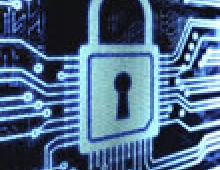
AOL Declares War on Phishing
America Online (AOL) officially announced on Tuesday that it has filed three civil lawsuits against major phishing organizations seeking $18 million from the groups.
"AOL filed suit against 30 unnamed phishing organizations, many of them outside the U.S.," said Nicholas Graham, an AOL spokesman. AOL hopes to identify the phishing operations, and the company expects the number of complaints and lawsuits will grow as the legal battle moves on.
Using a Virginia antiphishing law adopted in July 2005, AOL filed the lawsuits against several phishing groups in U.S. District Court for the Eastern District of Virginia. The lawsuits also cite federal law focusing on trademark and antispam rules.
"Our intention is to bust them apart and put them out of business, which is good for AOL and good for the Internet at large," he said.
The company accuses several phishers of sending AOL and CompuServe members to e-mail messages that intend to lure them to fake Web sites that are similar to the sites of legitimate companies. The phishing scams try to trick the consumers into giving up their personal information, such as AOL screen names, passwords and credit card information.
The money AOL is seeking would address the effect phishing organizations have had on the company, not individual AOL users. While the Virginia antiphishing law does not allow private citizens to sue phishing organizations, the monetary award would benefit AOL users because the company would use the money to fight phishing and other Internet scams, Graham said.
AOL has collected thousands of examples of e-mail messages transmitted by what it calls phishing "gangs," it said. The company would not identify the "gangs" or give their locations.
Using a Virginia antiphishing law adopted in July 2005, AOL filed the lawsuits against several phishing groups in U.S. District Court for the Eastern District of Virginia. The lawsuits also cite federal law focusing on trademark and antispam rules.
"Our intention is to bust them apart and put them out of business, which is good for AOL and good for the Internet at large," he said.
The company accuses several phishers of sending AOL and CompuServe members to e-mail messages that intend to lure them to fake Web sites that are similar to the sites of legitimate companies. The phishing scams try to trick the consumers into giving up their personal information, such as AOL screen names, passwords and credit card information.
The money AOL is seeking would address the effect phishing organizations have had on the company, not individual AOL users. While the Virginia antiphishing law does not allow private citizens to sue phishing organizations, the monetary award would benefit AOL users because the company would use the money to fight phishing and other Internet scams, Graham said.
AOL has collected thousands of examples of e-mail messages transmitted by what it calls phishing "gangs," it said. The company would not identify the "gangs" or give their locations.



















